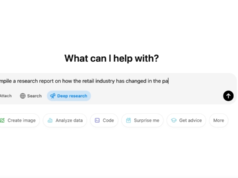Users can now take the prepackaged, data science-themed Azure virtual machine for a quick spin before committing to a paid deployment.
Data scientists and organizations considering a cloud-based platform for their big data analytics needs can now evaluate Microsoft’s Data Science Virtual Machine for several hours without paying a dime.
“You can launch a VM instance with just a few clicks and explore it fully—no credit cards or Azure subscriptions needed,” wrote Microsoft staffers Paul Shealy, a senior software engineer, and Barnam Bora, a program manager, in a blog post. “A test drive lasts eight hours, enough time for you to try several sample solutions or analyze your own dataset.”
A community is sprouting up around DSVM. Microsoft launched a new online forum where users can seek assistance, share knowledge and provide feedback about DSVM.
Microsoft also released a deep learning toolkit that uses graphics processors to help users explore the brain-inspired branch of artificial intelligence faster than is possible with standard server chips. Microsoft offers Azure virtual machines that tap the power of graphical processing units (GPU) from Nvidia, namely the company’s Tesla K80 or M60 GPUs.
“The deep learning toolkit for the DSVM is a solution for the Windows DSVM that installs several GPU-accelerated tools for deep learning, CUDA, cuDNN, the GPU driver and several samples. With the same steps required to create a new VM, you can have a DSVM ready for deep learning on Azure GPUs,” said Shealy and Bora.
Also this week, Microsoft announced the addition of custom modules to the Cortana Intelligence Gallery, a hub for sharing tutorials, machine learning experiments and other resources concerning the company’s artificial intelligence, big data and advanced analytics platform.
“Essentially, we are offering a centralized repository for custom modules that community members such as yourself can use in your own experiments,” stated the company in a Nov. 1 announcement. “We have populated this with a nice collection of initial modules that you can choose from today, including long-awaited time series analytics modules, super useful association rules module, additional clustering algorithms beyond k-means, exciting visualization modules as well as workhorse utility modules to automate your run-of-the-mill data processing tasks.”
Microsoft also announced the winners of its Women’s Health Risk Assessment Competition. Based on the Cortana Intelligence Competition Platform, the contest used a dataset donated by the Bill and Melinda Gates Foundation to tackle female reproductive health in underserved regions.
“Specifically, we decided to host a competition to build models in Azure Machine Learning that would categorize young women aged between 15 and 30 years and from one of nine underdeveloped regions into a risk segment based on various data points collected from these subjects,” blogged Hai Ning, principal program manager at Microsoft. “This would allow healthcare providers to offer them appropriate education and training programs to reduce their reproductive health risks, including for HIV infections.”
The winning entry, among 2,392 submissions from 493 participants, was a predictive experiment from Ion Kleopas.






